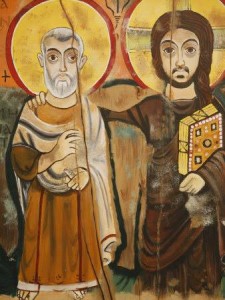![]() “Taste and see the goodness of the Lord: I will get up and go to my Father and shall say to him: Father, I have sinned against heaven and against you.” Do we see ourselves as sinners in redemption? Do we see the truth of ourselves as needing change of heart, mind and action? There are so many of us in the Christian community that need to take up a new vigor in what is communicated by the Lord in His gospel and in His sacraments, and the Church. We know from experience and consistent teaching that the Church is holy, but the members of the Church, including the clergy, are sinners and their actions can be destructive. Sin is the result of not knowing the goodness of the Lord. In the end, the judgment of the Lord is based on how we treat people. Did we love others? Can we love those who have hurt us deeply?
“Taste and see the goodness of the Lord: I will get up and go to my Father and shall say to him: Father, I have sinned against heaven and against you.” Do we see ourselves as sinners in redemption? Do we see the truth of ourselves as needing change of heart, mind and action? There are so many of us in the Christian community that need to take up a new vigor in what is communicated by the Lord in His gospel and in His sacraments, and the Church. We know from experience and consistent teaching that the Church is holy, but the members of the Church, including the clergy, are sinners and their actions can be destructive. Sin is the result of not knowing the goodness of the Lord. In the end, the judgment of the Lord is based on how we treat people. Did we love others? Can we love those who have hurt us deeply?
These words of Saint John Bosco ring true about compassion: “This was the method that Jesus used with the Apostles. He put up with their ignorance and roughness and even their infidelity. He treated sinners with a kindness and affection that caused some to be shocked, others to be scandalized, and still others to hope for God’s mercy. And so he appeals to us to be gentle and humble of heart.”
One of the phrases in Luke’s version of the Prodigal Son sticks out: “filled with compassion.” Where do you stand? As the Lord and the father in the parable are filled with compassion, so ought we be filled. Do you taste and see the goodness of the Lord in welcoming the sinner? How do you live the conversion and repentance described by Jesus?
In the Catechism of the Catholic Church teaches us,
The process of conversion and repentance was described by Jesus in the parable of the prodigal son, the center of which is the merciful father: the fascination of illusory freedom, the abandonment of the father’s house; the extreme misery in which the son finds himself after squandering his fortune; his deep humiliation at finding himself obliged to feed swine, and still worse, at wanting to feed on the husks the pigs ate; his reflection on all he has lost; his repentance and decision to declare himself guilty before his father; the journey back; the father’s generous welcome; the father’s joy – all these are characteristic of the process of conversion. The beautiful robe, the ring, and the festive banquet are symbols of that new life – pure worthy, and joyful – of anyone who returns to God and to the bosom of his family, which is the Church. Only the heart of Christ who knows the depths of his Father’s love could reveal to us the abyss of his mercy in so simple and beautiful a way. (1439)


